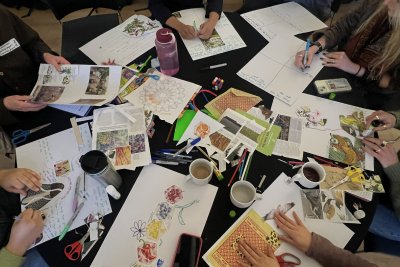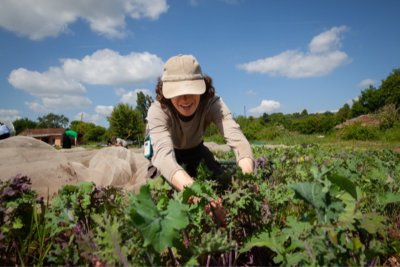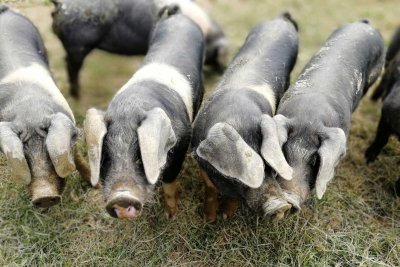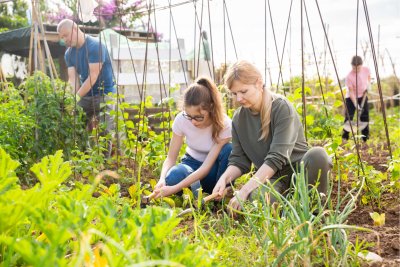 Growers attending to crops. Copyright: JackF | Istock
Growers attending to crops. Copyright: JackF | Istock
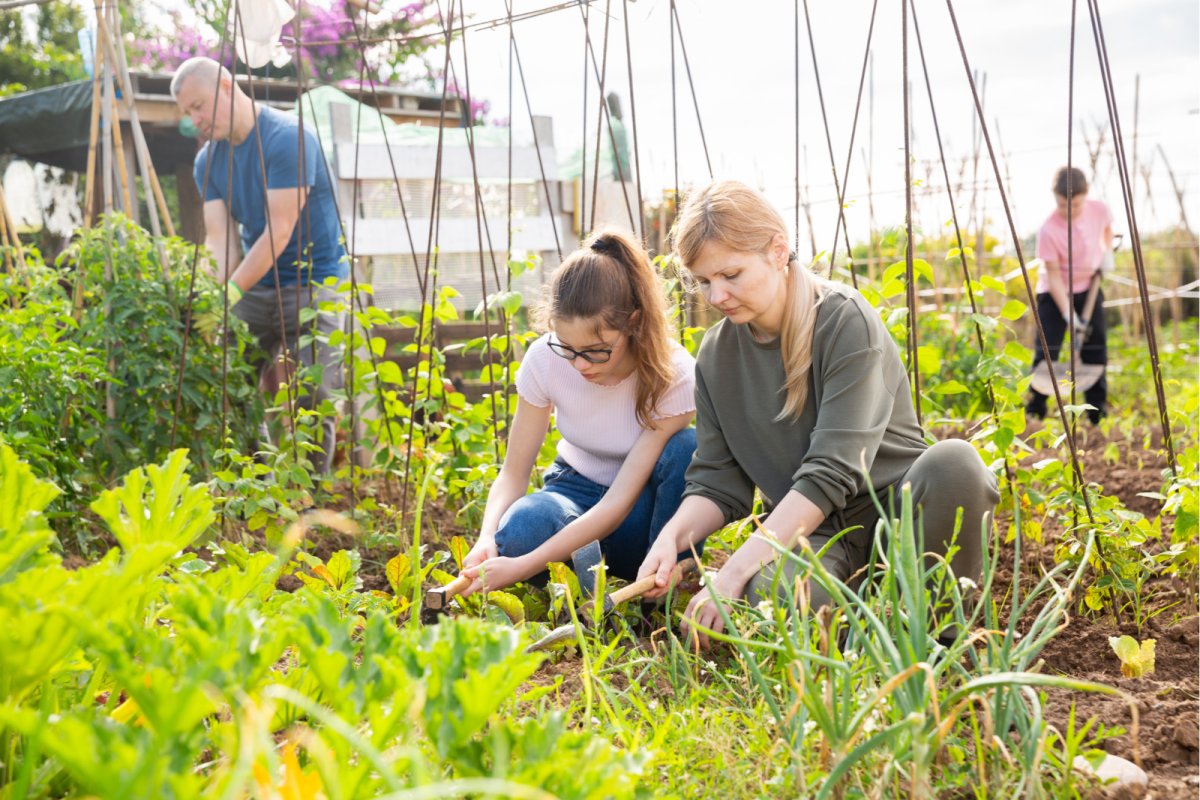
Government funding could serve small farms better – here’s how
Sustain, in collaboration with the UK Fruit and Vegetable Coalition, has published a new briefing on how government could better support small farms and horticulture.
A recent survey has shed light on the ineffectiveness of the government’s flagship agri-environment scheme for supporting small farms. In this blog, Georgina Edwards, Sustainable Farming Officer at Sustain explores what needs to change to ensure small farms can thrive.
Why small farms matter – and why they need support
Small farms deserve better support, because they punch well above their weight - they’re often highly productive, create more jobs per hectare, and are often run by younger, innovative farmers. These farms support biodiversity, soil health, and water quality through diverse cropping and agroecological practices.
Small-scale food producers are vital for local food security too—many sell directly to communities. During the pandemic, they quickly met soaring demand for veg boxes, demonstrating their resilience to global shocks.
Small farms also strengthen local economies and communities—offering education, boosting wellbeing, and helping people reconnect with how food is grown. Investing in small farms means supporting a fairer, greener food system—one that’s better for people, the planet, and future generations.
In spite of all these benefits, the number of small farms in the UK has declined in recent decades. Better government policies and support could reverse this trend.
An opportunity for small farms
Since opening for applications in 2023, the government's flagship funding scheme, the Sustainable Farming Incentive (SFI), created new opportunities for small farms. Although the scheme is now closed to new applications, it offered small-scale farmers and growers "public money for public goods" for the first time.
Previously, the EU's Basic Payment Scheme (BPS) required farms to be a minimum of 5 hectares in size (around 12.5 acres) to qualify for payments. In July 2024, the government announced that it would be removing this limit, opening up funding schemes to farms of all sizes in England.
The removal of the 5-hectare limit was a landmark moment, and a significant step towards creating a level playing field for small farms. Its removal had long been campaigned for by organisations such as Landworkers’ Alliance and Sustain. A significant number of farms stood to benefit from the change – according to DEFRA, 13% of the UK's 100,000 farms are under 5 ha. For the first time in decades, thousands of small and family farms would benefit from government support for the public good they deliver
Is government funding supporting small farms?
In Spring 2025, the UK Fruit and Vegetable Coalition launched a survey to understand whether the removal of the 5-hectare limit from the SFI funding scheme had made a tangible difference to small farmers and growers.
Only 1 in 5 small farms applied to SFI, according to a survey by the UK Fruit and Vegetable Coalition
Despite small farms now being eligible for government payments, many chose not to apply. 80% of small-scale farmers and growers said that they knew that the 5-hectare limit had been removed from the SFI. However, only 1 in 5 had applied to the SFI. Very few of those that did apply reported having a positive experience.
Why the SFI Scheme isn’t working for small farms
The survey of small-scale farmers and growers revealed deep frustrations with how the scheme is structured and delivered. Despite the scheme’s good intentions, it failed to reflect the realities of smaller farming operations. Here are some of the key issues from the survey responses.
A scheme designed for scale
The SFI pays farmers for actions like managing hedgerows or reducing pesticide use, with payments calculated per hectare. While this works for large farms that can enrol significant land areas, small farms—often growing a wide diversity of crops in compact spaces—struggle to make the numbers add up. In some cases, actions on small sites could cost more to implement that the SFI payment - for example, if paying for a specialist consultant is required.
Too much paperwork, too little payoff
In short, many farmers and growers reported that the funding they would receive would be hardly enough to justify the time and complexity involved in applying. Small farms must go through the same rigorous application process for a much smaller return, making the administration burden and time investment disproportionate to the benefits of the scheme. Unlike larger enterprises, small farms tend to be unable to afford specialist advisers, consultants and land agents who could help with the paperwork. They may have been slower at submitting their applications, putting them at an unfair disadvantage in a scheme that dispensed funding on a "first come, first served" basis.
Lack of guidance and missed opportunities
Survey responses also highlighted a lack of tailored support. Many reported that available advice from DEFRA was too generic. Others delayed applying in anticipation of new options, such as support for educational visits, only to find the scheme had closed before those were introduced. Non-area based payments, like support for educational and public access, could have made participating in the scheme more financially viable for small farms and helped them continue to connect communities with where their food comes from.
What needs to change
For the SFI to work for farms of all sizes, it must become more accessible and relevant to small-scale farms. That means rethinking payment structures, simplifying application processes, and providing guidance that speaks directly to the needs of smaller, more diverse farming and horticultural businesses.
Our briefing sets out what steps the government should take next. These involve improvements to the SFI scheme, alongside other measures.
To improve future versions of the SFI:
- Act on previous recommendations from DEFRA’s ELMs trials to better support horticultural businesses, such as working more closely with organic accreditation bodies to streamline the application process.
- Ringfence 10% of the budget for small farms under 5ha that are actively trading.
- Introduce caps on the amount of funding each farm can apply for, to ensure fairer distribution.
- Monitor applications to the scheme by farm size and type.
- Incorporate educational access payments into the SFI scheme.
Beyond SFI, it's important that small-scale farms and growing businesses are financially viable in the long-term, so that they can continue to deliver social and economic value to communities and local economies. Demand for organic produce is growing, so we need to see an increase in the number of horticulture businesses, as well as more support for existing businesses to scale up.
While the UK Fruit and Vegetable Coalition's briefing focuses primarily on changes to SFI, we also recommended the following measures beyond SFI to support small-scale farms and horticulture:
- Ensure other funding streams like the ADOPT fund are accessible to small farms.
- Develop a national Horticulture Strategy to boost UK-grown fruit and veg.
- Prioritise small and medium farms in public food procurement policies.
- Reform planning to protect green belt farmland and support peri-urban farms.
Download the briefing on support for small farms
Sustainable Farming Campaign: Pushing for the integration of sustainable farming into local, regional and national government policies.
Sustain
The Green House
244-254 Cambridge Heath Road
London E2 9DA
020 3559 6777
sustain@sustainweb.org
Sustain advocates food and agriculture policies and practices that enhance the health and welfare of people and animals, improve the working and living environment, promote equity and enrich society and culture.
© Sustain 2026
Registered charity (no. 1018643)
Data privacy & cookies
Icons by Icons8



